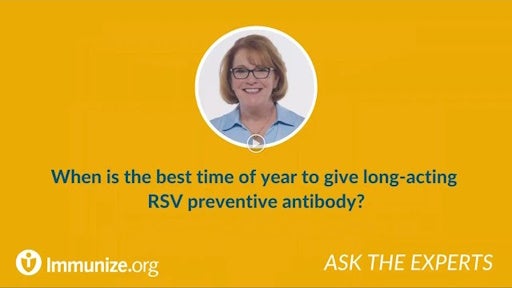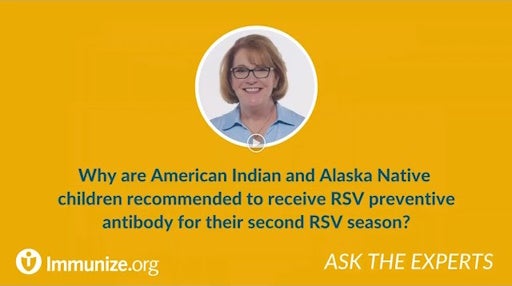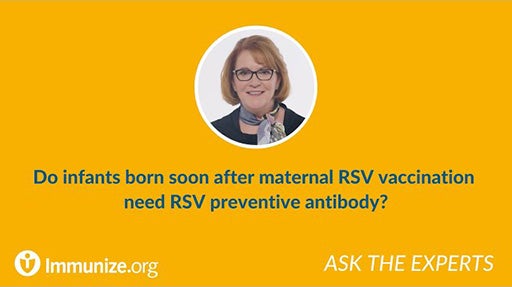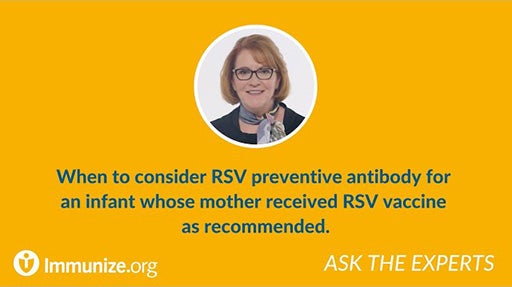- RSV (Respiratory Syncytial Virus)
- RSV Preventive Antibody Recommendations for Infants
What is the ACIP recommendation for nirsevimab?
ACIP recommends one dose of nirsevimab (Beyfortus, Sanofi) preventive antibody for all infants less than 8 months and 0 days of age who are born during or are entering their first RSV season.
ACIP also recommends one dose of nirsevimab for specific groups of infants and children age 8 through 19 months who are entering their second RSV season and at increased risk for severe RSV disease. These include the following:
Children 8 through 19 months at high risk and ineligible for palivizumab:
- American Indian or Alaska Native children entering their second RSV season. This is especially important for those who are in remote regions or in communities known to have increased rates of severe RSV disease in children.
Children age 8 through 19 months at high risk and eligible for palivizumab (Synagis, AstraZeneca):
- Children with chronic lung disease of prematurity who require medical support during the six months before the start of their second RSV season
- Children who are severely immunocompromised
- Children with evidence of severe cystic fibrosis (previous hospitalization for pulmonary exacerbation in the first year of life or abnormalities on chest imaging that persist when stable) or that have weight-for-length that is less than the 10th percentile
If nirsevimab is given to a child eligible for palivizumab, do not give palivizumab. If nirsevimab is unavailable, CDC recommends that palivizumab (a short-acting RSV monoclonal antibody) should be administered per AAP recommendations (see https://doi.org/10.1542/peds.2023-061803). Because palivizumab is effective for 30 days, if nirsevimab becomes available during the RSV season, aim to administer nirsevimab at the end of the 30-day period following the dose of palivizumab. Do not give palivizumab during the season after administering nirsevimab. In February 2024, AAP published updated guidance on prevention of RSV disease and the use of palivizumab when nirsevimab is unavailable: https://publications.aap.org/redbook/resources/25379/AAP-Recommendations-for-the-Prevention-of-RSV.
The full ACIP recommendation is available at www.cdc.gov/mmwr/volumes/72/wr/pdfs/mm7234a4-H.pdf.
Find further clinical considerations and information at CDC’s web page for healthcare providers on RSV immunization for infants and young children: www.cdc.gov/vaccines/vpd/rsv/hcp/child.html.



